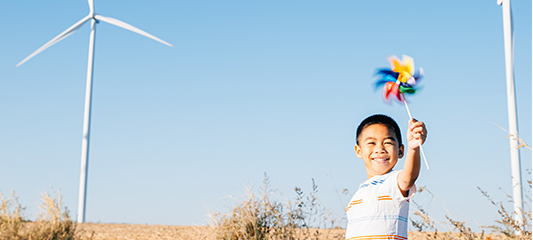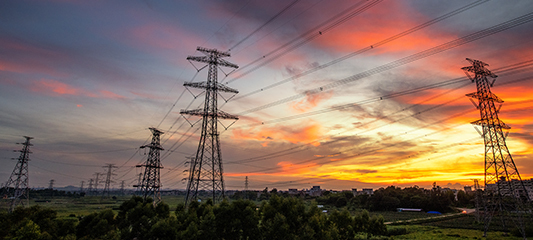Climate change and energy
We’re working for a just, inclusive and timely transition to a low-carbon future, with healthy, efficient homes; affordable, clean energy; and low-emissions jobs for all.
Climate change will affect every Australian and many of its impacts are likely to hit low-income households hardest.
Older people, infants and people with disability are particularly at risk during heatwaves, for example, which are predicted to become more frequent and severe in south-eastern Australia.
The solutions are clear – we need to lower emissions by moving to cleaner, affordable energy and taking action across the economy. It’s essential the transition is fair.
Our work seeks to ensure low-income households and communities are part of the solution to climate change. We develop policy, undertake research and run pilots to test innovative ideas.
Our current focuses include:
- addressing climate change by advocating for a fair, timely transition to net zero emissions, whilst supporting adaptation to the unavoidable impacts such as more heatwaves
- improving the efficiency of homes and making them healthier to live in and cheaper to run
- reducing energy costs for households and ensuring access to affordable, clean energy.
Addressing climate change fairly
Climate change poses serious risks to the health and wellbeing of people living in Australia, especially those experiencing disadvantage. To avoid catastrophic climate change, it’s vital that we act now.
Strong climate change policy can go hand-in-hand with job creation and lowering energy bills. We're working to ensure equitable responses to climate change.
We need:
- ambitious emissions reduction targets and policies that are fair and well-resourced
- community-led plans to ensure everyone living in Australia can adapt to the unavoidable impacts of climate change
- measures to enable a fair transition for affected communities and households.
Healthy, efficient homes
Energy efficient homes and appliances can lower household energy bills while also reducing carbon pollution and improving residents’ health.
However, the people who most need efficiency upgrades often can’t afford them or can't make changes because they are renting.
We are working with government and corporate partners to better understand the benefits of energy efficiency and develop models to ensure low-income and energy-stressed households have efficient homes that are warm in winter and cool in summer.
Affordable, clean energy
We’re working to ensure everyone living in Australia has access to affordable and clean energy.
Australia needs to rapidly transition to low-carbon energy sources, such as renewables. At the same time, we need to address the challenge of energy poverty, which afflicts hundreds of thousands of people living in Australia.
We know too many people struggle to afford the energy they need as high energy prices, which have increased dramatically over the past decade, strain household budgets and force many to ration their energy use to the detriment of their wellbeing.
We’re working to create solutions: forging a pathway to zero carbon energy with certainty in climate change and energy policy; securing lower network prices, reforming retail markets to protect vulnerable people, and promoting access to energy efficiency measures and renewable energy.
Find all recent publications on Climate change and energy (2000–present)
Visit the BSL library for our prior research on Climate change and energy (pre 2000)
Selected publications
Our study explores the views of lower-income households about moving from gas to electricity as home energy sources, the barriers they face, and the implications for policy to achieve equitable solutions.
Read reportSelected projects

This project identified ways to enable a fair transition to clean affordable energy in Australia.
Learn more
This project aims to lower energy bills by representing consumers in the setting of electricity network costs.
Learn more
The Brotherhood advocates for energy efficiency policy and program development, which assists low income households.
Learn more